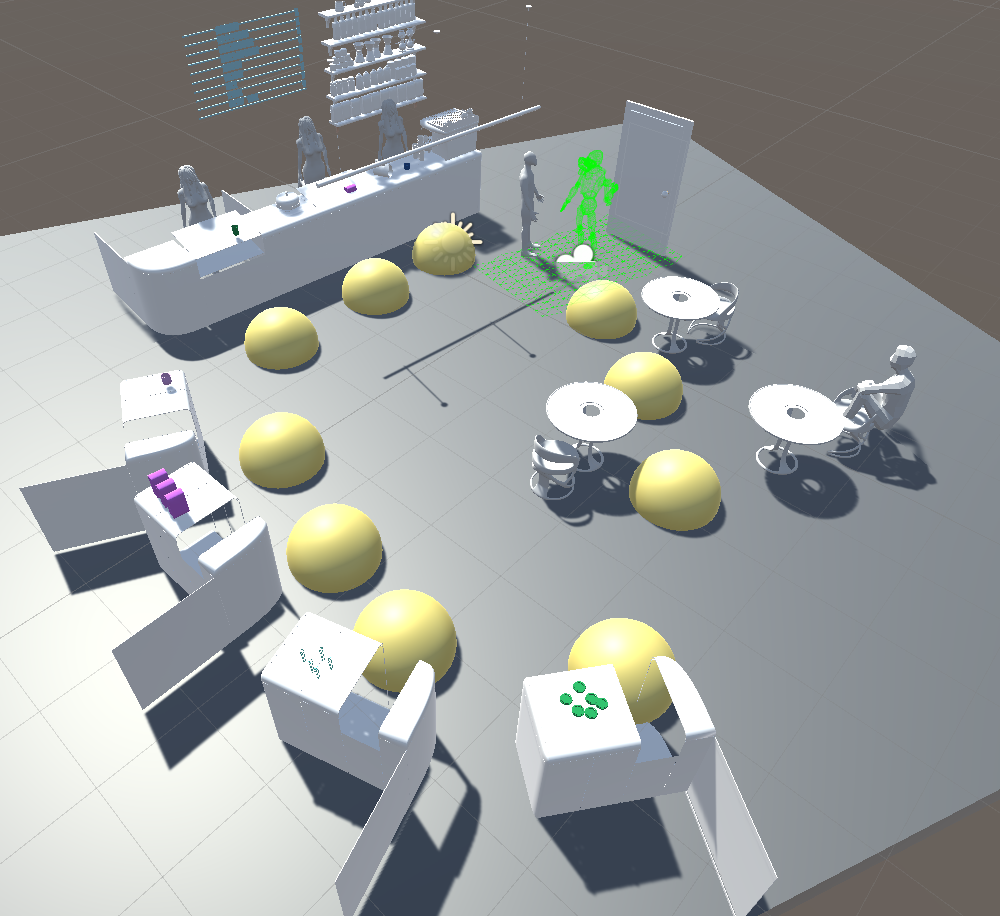Virtual reality environment for studying embodied cognition 2019
Immersive virtual environments (IVEs) are increasingly being explored as potential educational tools. However, it isunclear which aspects of IVEs contribute to learning, including hardware modalities and learner responses (e.g. motivation, us-ability, cognitive load and presence). One IVE hardware modality particularly backed by theory is embodied controls, with their potential for leveraging embodied cognition for enhanced learn-ing outcomes.
This research project explores if embodied controls can beleveraged to enhance learning in an IVE by comparing language learning outcomes from an IVE using embodied controls, anda non-embodied control. It explores two words classes – verbs and nouns – to examine if there is a difference in learningoutcome for embodied controls with actions (verbs) and object interactions (nouns). This paper also explores co-variables oftenlinked with IVE learning (motivation, presence, cognitive load) to understand why learning gain occurs. It finds that leveragingembodied controls provides better learning outcomes, with noimpact on cognitive load. It also finds that the benefit does notcorrelate with motivation or presence ratings, suggesting that embodiment-induced motivation or immersion is not the cause of the learning enhancements, and therefore this could be evidence for embodied cognition-based learning in IVEs.
